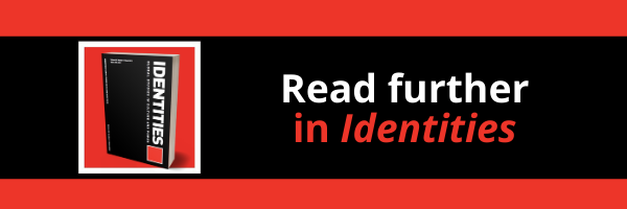|
|
From the institutions to the streets: the role of emotions in Barcelona’s migration control8/3/2023
In her essay The Cultural Politics of Emotions, Sara Ahmed raises the question: ‘What do emotions do?’, implying the social circulation of emotions. Even if felt by each individual in a unique way, emotions are addressed collectively, creating affective connections which in turn craft social realities.
There is a diverse range of institutions and practices that make up migration control in Barcelona. Despite the claim that it is governed by the rule of law, where there is no room for subjective or accidental decisions, emotions play a key role. What do a practitioner employed by a municipal institution in charge of migrant inclusion and a person categorized as a migrant with precarious legal status share, when they meet face to face? They do not know each other and they have never met before, but a bond is assumed to be created between them. They find themselves in an unequal power relationship, since the institutional practitioner has the power to decide through their intervention on the fate of their interlocutor. What is left in this connection which is not direct or spontaneous, but rather mediated by protocols and paperwork, and in which each person already has an assigned role which he/she plays or contests? I tried to answer these questions in my Identities article, ‘Back in order’: the role of gatekeepers in erecting internal borders in Barcelona’, exposing the role of emotions in migrants’ control in urban space, what I understood as a bordering practice.
In the last two decades, Barcelona has seen itself as a ‘welcoming city’ offering programmes to include the refugees arriving to the city. At the same time, a line was drawn between the refugees and the migrants setting foot in the city. The ‘welcoming city’ has simultaneously fostered the idea of preventing a ‘call effect’ to not to abuse the city’s resources, dividing between the ‘righteous’ and the ‘liar’, the ‘good’ and the ‘bad’ migrant.
The article focuses on the street interventions following the encounters between municipal bureaucrats employed in different departments working on the migrants’ inclusion in Barcelona city, street-level bureaucrats (Lipsky 1980), and migrants with a precarious legal status and without access to housing who use the street to work or live. During these encounters, contradictory emotions such as annoyance, mistrust and closeness are mobilized by the municipal bureaucrats both during their connection with the migrants as well as between themselves. These emotions, based on previous discourses of distrust toward migrants, are displayed in the street during interventions and legitimate practices such as expulsion from the neighbourhoods in the name of ‘inclusion’. In turn, these emotions circulate among the bureaucrats, and the collective creation of the ‘good (or bad) migrant’ justifies the bureaucratic work, giving it a meaning and ensuring the organizational cohesion. Practitioners themselves experience contradictory feelings in relation to their interventions. Required to act close-up, but simultaneously with a ‘managed heart’ (Hochschild 1983), separating their own feelings from their actions to prove a professional standpoint, practitioners themselves feel a sense of embarrassment, even discredit. They need to justify to themselves their self-contradictory daily work. Scanning the emotions displayed during the street connections between the bureaucrats and migrants, and how these emotions are translated into institutional work ethics, shows us that the emotions are not accidental, but structural to migration control. On the one hand, this fact corroborates the unpredictability of the institutional interventions and, on the other hand, the decision power held by every practitioner acting in the street. As I have explained in my article and using bureaucrats’ own words, social realities are created based on emotions, perceptions and the negotiation of feelings between interlocutors with unequal power positions, and less on real facts.
Blog post by Corina Tulbure, GRECS, University of Barcelona
Read the Identities article: Tulbure, Corina. (2023). ‘Back in order’: the role of gatekeepers in erecting internal borders in Barcelona. Identities: Global Studies in Culture and Power. DOI: 10.1080/1070289X.2022.2159160
Read further in Identities:
‘Detention is morally exhausting’: melancholia of detention centres in France OPEN ACCESS Tracing the circulation of emotions in Swiss migration enforcement: organizational dissonances, emotional contradictions and frictions Ambivalent feelings: ‘filotimo’ in the Greek migration regime Comments are closed.
|
|
Explore Identities at tandfonline.com/GIDE |
|
The views and opinions expressed on The Identities Blog are solely those of the original blog post authors, and not of the journal, Taylor & Francis Group or the University of Glasgow.


